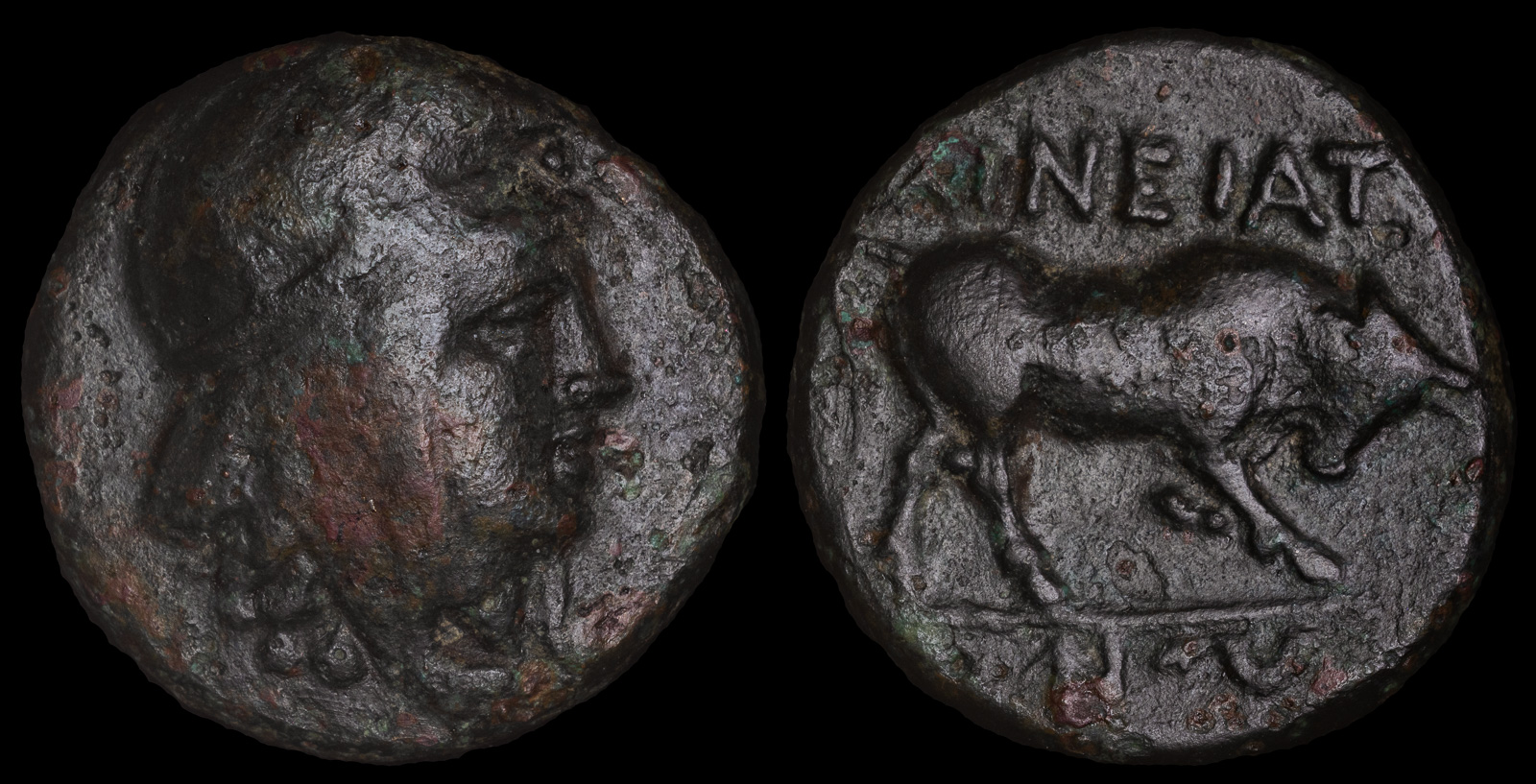Aeneas
View All Tags
According to myth, Aeneas was the son of the Trojan prince Anchises and the goddess Venus (Aphrodite in Greek mythology). As a result, he was part divine and destined for greatness. During the fall of Troy, Aeneas played a heroic role by rescuing his family and carrying his elderly father on his shoulders while leading his son Ascanius to safety. This act of filial devotion became one of the defining moments of his character, showcasing his commitment to family and duty.
After escaping Troy, Aeneas embarked on a perilous journey to fulfill his destiny of founding a new city. Guided by the gods, he and his followers wandered across the Mediterranean, facing numerous trials and challenges. These included encounters with the Harpies, a visit to the underworld, and the temptations of Dido, the queen of Carthage. Aeneas and Dido fell in love, but his divine mission compelled him to leave her, leading to her tragic death. This episode highlights Aeneas’s unwavering sense of duty, even at great personal cost.
Upon reaching Italy, Aeneas faced new conflicts as he sought to establish his people in the land promised by fate. He formed alliances and waged war against local tribes, most notably against Turnus, the leader of the Rutulians. Aeneas ultimately defeated Turnus in single combat, securing his place as the founder of a new Trojan lineage that would culminate in the establishment of Rome. His son Ascanius, also known as Iulus, was said to be the ancestor of the Julian family, linking Aeneas directly to Roman imperial lineage.

Macedon, Aineia
Late 4th century BCE
Æ 16mm, 3.66 g, 9h
Head of Aeneas right, wearing Phrygian cap /
Bull butting right.
AMNG III/2, 8; HGC 3, 379
Ex G. Hirsch 296